This investigation to find out how exercise affects heart rate is a great way to introduce correct scientific procedures and think about variables that can change and those that need to remain constant.
Exercise increases the rate at which energy is needed from food, increasing the body's need for both nutrients and oxygen. This is why both pulse/heart rate and breathing rate increase when we exercise.
Pulse rate is an indication of heart rate, as the arteries expand each time the ventricles pump blood out of the heart.
The heart pumps extra food and oxygen to the muscles while breathing speeds up to get more oxygen into the body and remove carbon dioxide.
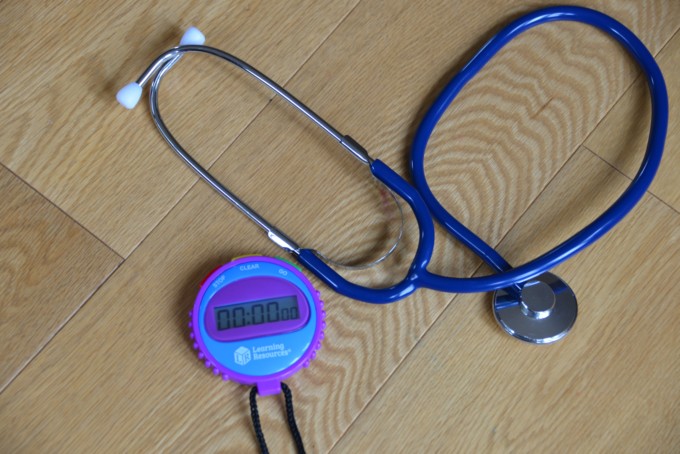
How does exercise affect heart rate investigation
Step 1
Use the stethoscopes and timers to record how many heartbeats you can hear in 30 seconds.
Step 2
Exercise - this could be 30 seconds of star jumps or a mini obstacle course.
Step 3
Use the timers and stethoscopes again to record how many heartbeats you can hear in 30 seconds.
Use my handy heart rate and exercise investigation results table to record your results or design your own!
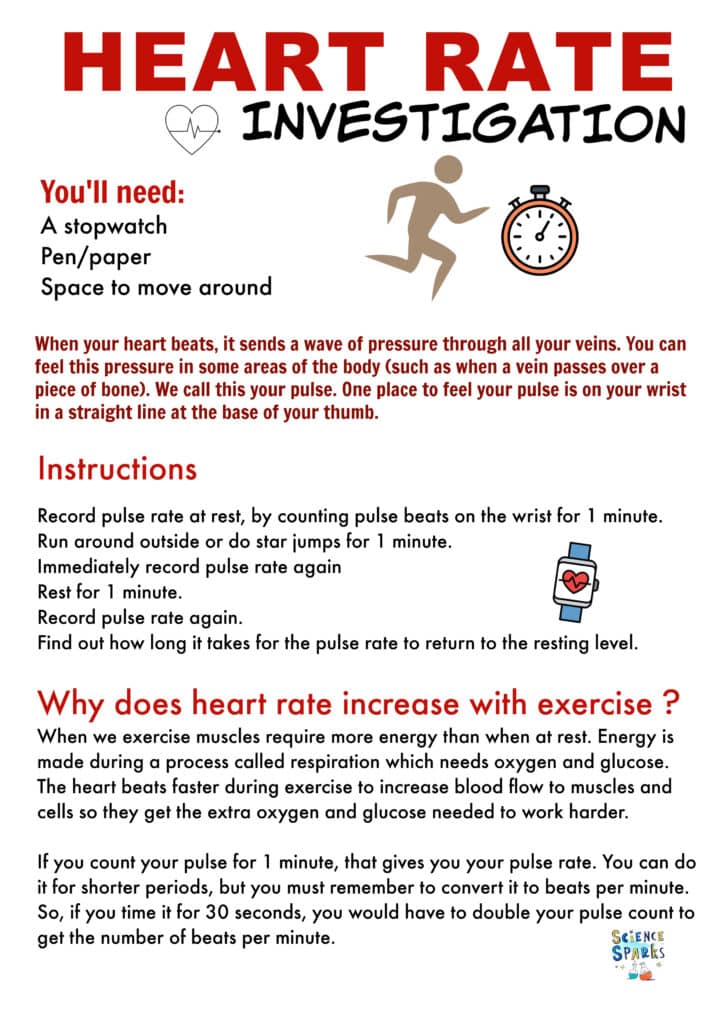
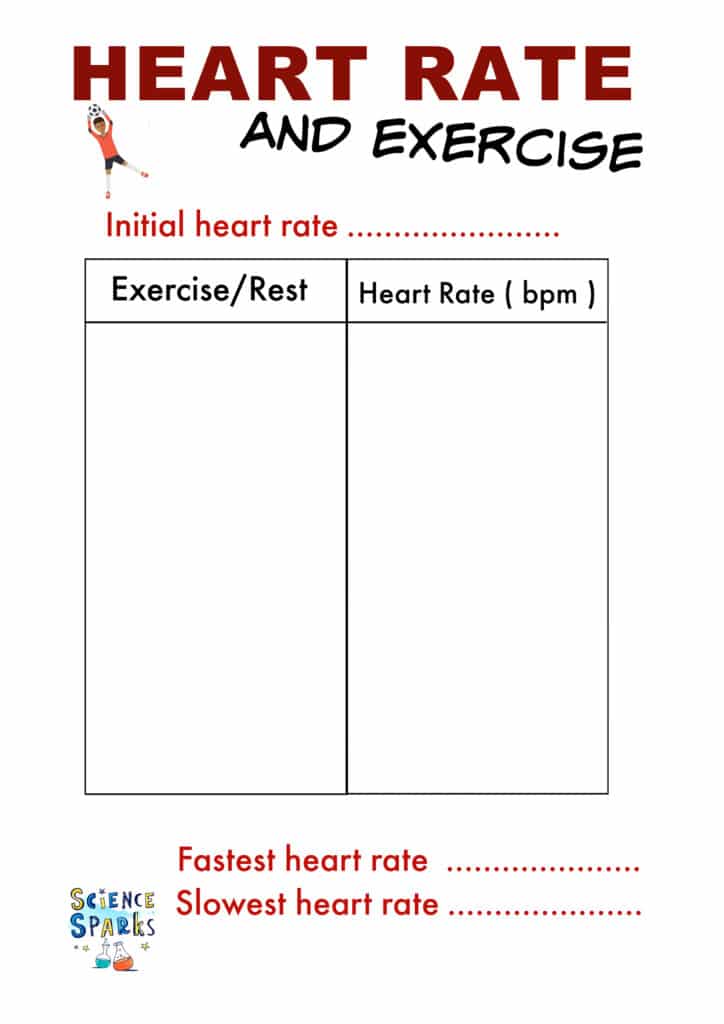
Let’s think scientifically
A scientific investigation should be a fair test, think about what conditions you need to keep the same and what condition you will change. You should also repeat the testing three times and find the average heart rate.
Things to keep the same:
Heartbeats must be counted before and after exercising for the same amount of time.
The person whose heart rate is compared must be the same.
Things to change:
Heart rate should be measured before and after exercise.
Make a prediction
What effect do you think exercise will have on heart rate?
Why do you think this?
Clue: When you exercise, your muscles need more food and oxygen from your blood, so your heart has to beat faster to transport them.
What is recovery time?
Recovery time is the time it takes for the heart rate to return to normal. If you have time, can you work out how long this will take you?
During exercise, the pulse rate and breathing rate of a fitter person rise much less than in an unfit person. Fitter people also have a shorter recovery time.
Links to Maths
Design a method of recording your results. Can you work out the average heart rate for 10 participants before and after exercise?
Calculate the difference between a person's heart rate before and after exercise.
Links to English
Can you write a letter to a friend telling them about your findings?
More Science for Kids
Find out how to make your own stethoscope with a funnel, tape and cardboard tube.
Make a pumping model of a heart, or try one of our sports science investigations.
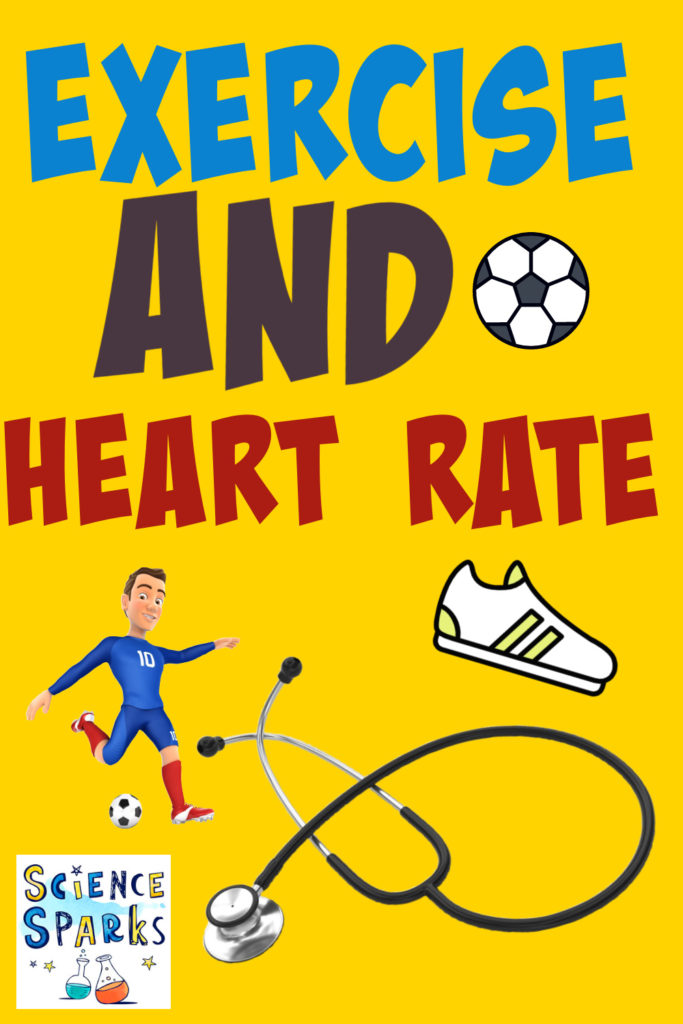
Suitable for:
Key Stage 1 Science: Animals, including Humans
Describe the importance for humans of exercise, eating the right amounts of different types of food, and hygiene.
Key Stage 2 Science: Animals, including Humans
Recognise the impact of diet, exercise, drugs and lifestyle on the way their bodies function
Last Updated on September 17, 2024 by Emma Vanstone
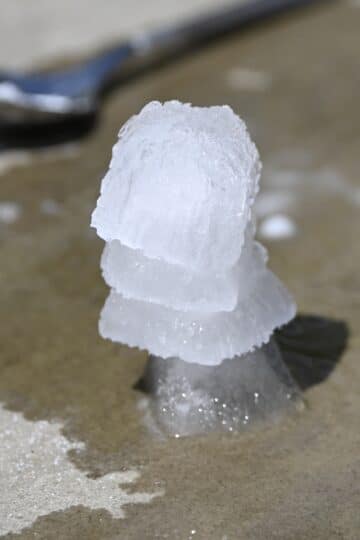
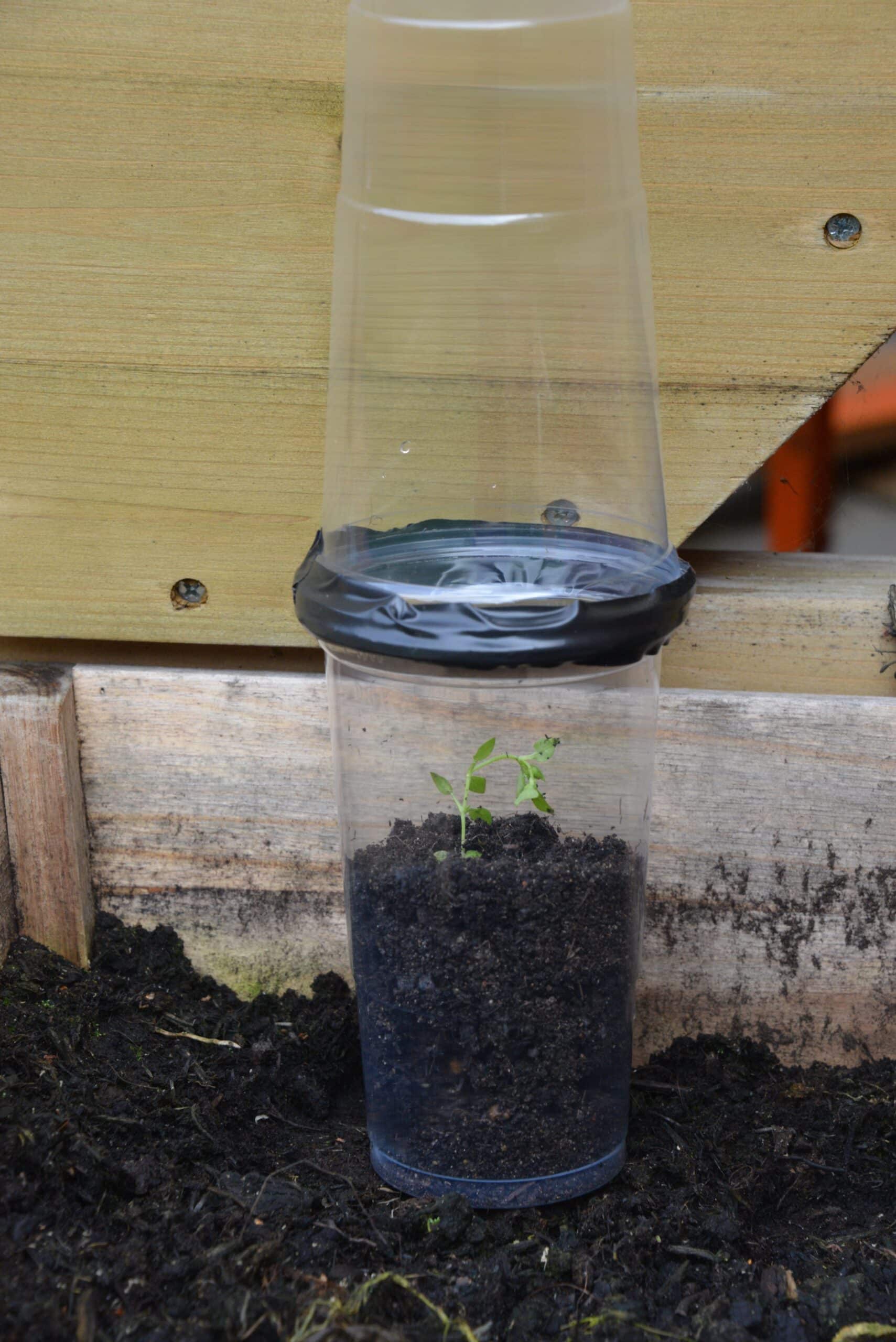

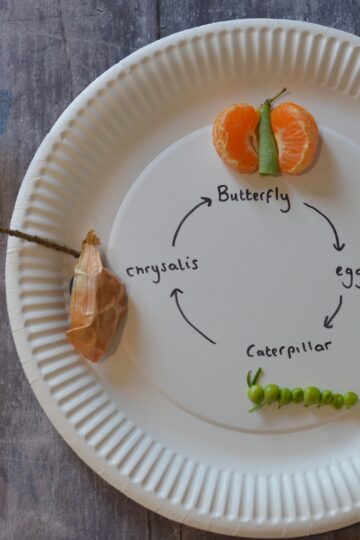
tyrone says
hi my name is tyrone
Jamie says
helpful thanks!
Reece says
This was extremely helpful for a school task, thx
Ezekiel says
It is for my science fair
Shaun says
Helps a lot for science project.